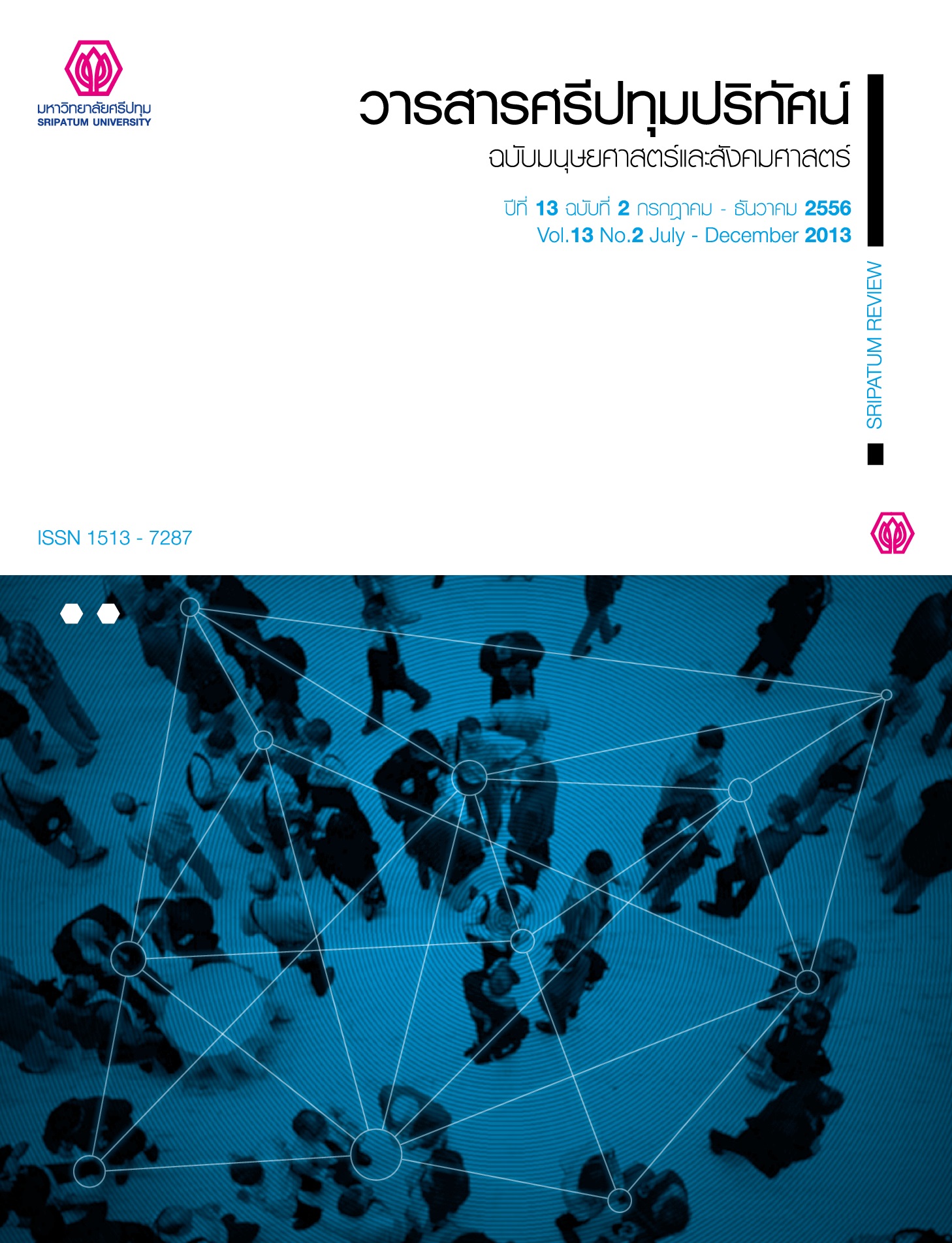DEVELOPMENT OF LEARNERS’ ABILITY BY USING POSITIVE FEEDBACK
Main Article Content
Abstract
In formative assessment, feedback is considered an essential element in helping to improve the students. The result of teacher’s feedback, however, is equivocal; sometimes it yields positive results as seen in learner’s improved knowledge, skills, and attitude. At other times, it could create an unfavorable outcome as students may feel anxious and confused by the feedback which they receive. Positive feedback is the feedback which provides beneficial results. It helps develop learner’s ability and promote learners’ motivation. This article presents the principles of how to provide positive feedback based upon the notion, which teachers must recognize, that giving feedback is a continuous process. It also addresses the factors – comprising teacher-related factors, student-related factors, technological factors, and organizational factors – which can help sustain positive feedback. When teachers use this framework appropriately with their lesson plan and execution, learners’ ability will be developed and their positive motivation will also be promoted.
Article Details
1. กองบรรณาธิการสงวนสิทธิ์ในการพิจารณาและตัดสินการตีพิมพ์บทความในวารสาร
2. บทความทุกเรื่องจะได้รับการตรวจสอบทางวิชาการโดยผู้ทรงคุณวุฒิ แต่ข้อความและเนื้อหาในบทความที่ตีพิมพ์เป็นความรับผิดชอบของผู้เขียนแต่เพียงผู้เดียว มิใช่ความคิดเห็นและความรับผิดชอบของมหาวิทยาลัยศรีปทุม
3. การคัดลอกอ้างอิงต้องดำเนินการตามการปฏิบัติในหมู่นักวิชาการโดยทั่วไป และสอดคล้องกับกฎหมายที่เกี่ยวข้อง
References
สำนักงานคณะกรรมการการศึกษาขั้นพื้นฐาน. 2551. แนวปฏิบัติการวัดและประเมินผลการเรียนรู้ : หลักสูตรแกนกลางการศึกษาขั้นพื้นฐาน พ.ศ.2551. (เอกสารอัดสำเนา).
Ackerman, D.S. and Gross, B.L. 2010. Instructor feedback: How much do students really want?. Journal of Marketing Education, 32, 2: 172-181.
Beaumont, C., O’ Doherty, M. and Shannon, L. 2011. Reconceptualising assessment feedback: a key to improving student learning?. Studies in Higher Education, 36, 6: 671-687.
Carless, D., Salter, D., Yang, M. and Lam, J. 2011. Developing sustainable feedback practices. Studies in Higher Education, 36, 4: 395-407.
Hattie, J. and Timperley, H. 2007. The power of feedback. Review of Educational Research, 77, 1: 81-112.
Hepper, E.G., Hart, C.M. and Gregg, A.P. 2011. Motivated expectations of positive feedback in social interactions. The Journal of Social Psychology, 151, 4: 455-477.
Jarzebowski, Ann-Marie. and Berg, J.P.R.V.D. 2012. When feedback is not enough: The impact of regulatory fit on motivation after positive feedback. International Coaching Psychology Review, 7, 1: 14-32.
Koka, A. and Hein, V. 2006. Perception of teachers’ positive feedback and perceived threat to sense of self in physical education: a longitudinal study. European Physical Education Review, 12, 2: 165-179.
Li, J. and Luca, R.D. 2012. Review of assessment feedback. Studies in Higher Education, 37, 1: 1-16.
Lizzio, A. and Wilson, K. 2008. Feedback on assessment: students’ perceptions of quality and effectiveness. Assessment & Evaluation in Higher Education, 33, 3: 263-275.
Nicol, D. 2007. Principles of good assessment and feedback: Theory and practice. [online].
Nicol, D.J., Macfarlane-Dick, D. 2006. Formative assessment and self-regulated learning: a model and seven principles of good feedback practice. Studies in Higher Education, 31, 2: 199-218.
Pei, M. 2012. Teachers’ discoursal strategies in providing positive feedback to student responses: a study of four english immersion teachers in people’s republic of china. INTERNATIONAL EDUCATION, Spring: 110-126.
Zacharias, N.T. 2007. Teacher and student attitudes toward teacher feedback. RELC Journal, 38, 1: 38-52.


